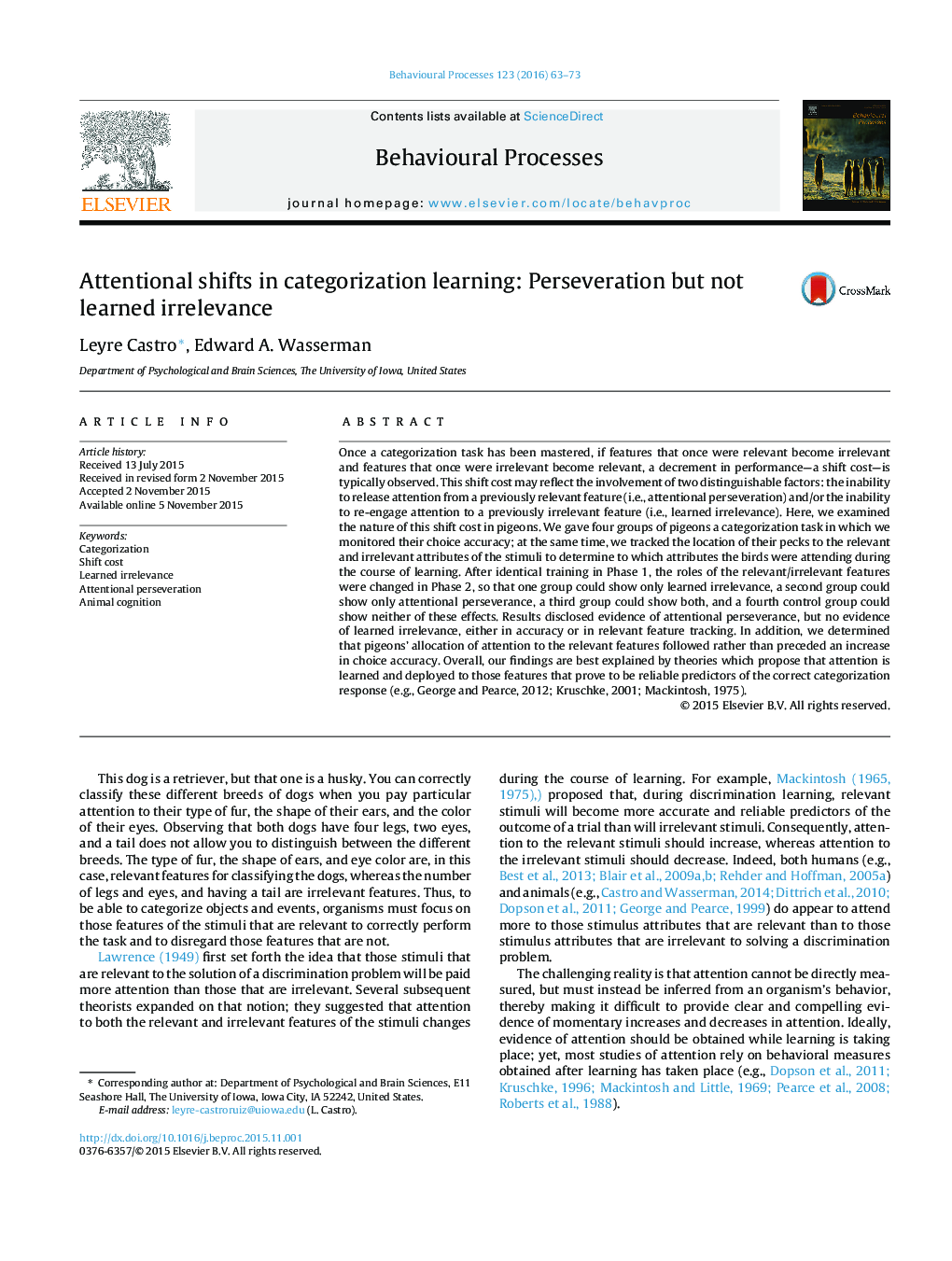| Article ID | Journal | Published Year | Pages | File Type |
|---|---|---|---|---|
| 2426418 | Behavioural Processes | 2016 | 11 Pages |
Once a categorization task has been mastered, if features that once were relevant become irrelevant and features that once were irrelevant become relevant, a decrement in performance—a shift cost—is typically observed. This shift cost may reflect the involvement of two distinguishable factors: the inability to release attention from a previously relevant feature (i.e., attentional perseveration) and/or the inability to re-engage attention to a previously irrelevant feature (i.e., learned irrelevance). Here, we examined the nature of this shift cost in pigeons. We gave four groups of pigeons a categorization task in which we monitored their choice accuracy; at the same time, we tracked the location of their pecks to the relevant and irrelevant attributes of the stimuli to determine to which attributes the birds were attending during the course of learning. After identical training in Phase 1, the roles of the relevant/irrelevant features were changed in Phase 2, so that one group could show only learned irrelevance, a second group could show only attentional perseverance, a third group could show both, and a fourth control group could show neither of these effects. Results disclosed evidence of attentional perseverance, but no evidence of learned irrelevance, either in accuracy or in relevant feature tracking. In addition, we determined that pigeons’ allocation of attention to the relevant features followed rather than preceded an increase in choice accuracy. Overall, our findings are best explained by theories which propose that attention is learned and deployed to those features that prove to be reliable predictors of the correct categorization response (e.g., George and Pearce, 2012; Kruschke, 2001; Mackintosh, 1975).
